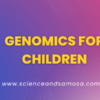‘Go Blue!’ to Fight Prostate Cancer

Prostate cancer only affects men. This cancer begins to grow in the prostate – a male reproductive organ. After the Testis (the male reproductive organs), Prostate is the second most important gland for proper male sexual functioning. This is a small gland that sits below the bladder near the rectum. It produces most of the fluid that makes up semen that enriches sperm.

prostate gland : image
Prostate cancer facts
- About one man in six will be diagnosed with prostate cancer during his lifetime, and one man in 36 will die of this disease
- Prostate cancer is the second leading cause of cancer related deaths in men
- About 6 cases in 10 are diagnosed in men 65 years or older
- Prostate cancer often has no early symptoms, means people are not aware of the disease at early stages
- Prostate cancer spreads, to the bones in nine out of 10 fatal cases
- Advanced prostate cancer can cause men to urinate more often or have a weaker flow of urine
- Most men diagnosed with prostate cancer do not die from it
- The older the patient, especially if they are over 70, the less aggressive the disease usually behaves
- Several studies have indicated that perhaps about 80% of all men in their eighties had prostate cancer when they died, but not even the doctor knew
- Scientists have found a chemical linked to depression to prevent prostate cancer invasion to the bones
- Prostate cancer treatment includes surgery, chemotherapy, cryotherapy, hormonal therapy and radiation
- Prostate cancer treatments, like radiation and hormone therapy can affect your sex life
Many famous celebrities have been diagnosed with prostate cancer

Ben Stiller : image

Robert De Niro : image
Risk Factors of Prostate cancer

All about prostate cancer : image
- Age is the greatest risk factor for prostate cancer
- Alcohol may raise the risk of prostate cancer
- Men whose relatives have had prostate cancer are considered to be at greater risk
- Prostate cancer occurs about 60% more often in African-American
- High dietary fat may contribute towards prostate cancer
- Smokeless tobacco called snus may increase a prostate cancer patient’s risk of death
- Obesity is Linked to Aggressive Prostate Cancer
- Multiple Sex Partners May Increase Risk of Prostate Cancer
- Tall men have a higher risk of prostate cancer
- Getting too much calcium can increase the risk of prostate cancer
- Having higher than average levels of androgen hormone in the body probably increases prostate cancer risk
- Men who consume large amounts of milk or other dairy products may have a slightly higher risk of developing prostate cancer
- High blood PSA levels are an indication that something may be wrong in the prostate
What is PSA ?

PSA test: image
PSA is prostate-specific antigen. The epithelial cells in the prostate gland produce this protein. Thirteen per cent of men over 55 have a PSA level of ≥ 4 ng/ml, but this does not automatically mean you have cancer. An elevated level can also be due to other conditions, such as benign enlargement of the prostate (BPH), a urinary tract infection or a prostate infection.
Benign Prostatic Hyperplasia is not cancer, but must be treated
In some older men the prostate may continue to grow, especially the part that is around the urethra. This can make it more difficult for the man to pass urine. When the prostate gland becomes too big in this way, the condition is called Benign Prostatic Hyperplasia. This is not cancer.
Main symptoms of prostate cancer :
– Feeling to urinate more often than usual, including at night, for example if men need to go again after two hours
–Difficulty starting to urinate
-Straining to taking a long time to finish urinating
-The feeling you are not emptying your bladder fully
-Needing to rush to the toilet – and sometime leaking before you get there
–Dribbling urine after you finish going to the toilet
– Pain in the lower back, upper thighs or hips
Prostate cancer awareness:
Every September is National Prostate Cancer Awareness Month. the Movember Foundation, a not-for-profit organization, raises funds every year by asking men to grow beards in November.
Host a Wear BLUE day and raise awareness and money for educating about men’s need to seek regular checkups or prostate cancer education.
The best advice about diet and activity to possibly reduce the risk of prostate cancer is to:
- Eat at least 2½ cups of a wide variety of vegetables and fruits each day
- Be physically active
- Stay at a healthy weight
Let’s confront it together and help men in our life – Father, Brother, Husband, Friend to lead disease free life by advising them to perform early detection. Knowledge and awareness is the key to surviving this cancer.








